Minister for Foreign Affairs Bilawal Bhutto-Zardari on Thursday said his office had taken a principled stance not to seek bilateral connect with his Indian counterparts at the SCO meeting due to the latter’s actions in Kashmir in 2019.
Briefing the Senate’s Standing Committee on Foreign Affairs on the SCO meeting he attended in India earlier this year, he said it was a difficult decision to take after India’s actions in Kashmir in 2019, adding that he had, at first, no interest in participating in the SCO meeting for emotional reasons. “But I sat to deliberate and decided to join as it was a multilateral meeting,” he added.
He continued by saying that he also used the forum meeting to meet FMs of other countries, except one, to strike a meaningful dialogue.
He went on to say that the other point his office considered that its founding members were Russia and China – our all-weather friend. “As the PDM took over, it has made the SCO and Central Asian countries its priority,” he added. It was a strong message to show how seriously we took the SCO, he added.
He said the host gave the Pakistani delegation full protocol during the meeting, adding that Indian FM Jaishankar acted professionally. “But I deplore that he used some words behind my back,” he added. It was the abuse of the chair of the SCO, he maintained.
He said he was not in favour of calling off any platform, adding that he also put forward Pakistan’s stance before the West too. “We deemed it necessary to attend the SCO not only because of the SCO but also to present our stance before the world,” he added.
Why would we give them the opportunity to go unchallenged, he asked.
He said he also tried to take input from all PDM members, adding that it turned out to be great opportunity. “India wanted to abuse the SCO platform to put their agenda unchallenged,” he added.
Our host [Indian FM] mentioned some issues in his speech, he said, adding that he [Mr Bhutto] got the opportunity to rebut India’s attempt to paint Muslims and Pakistanis as terrorist. “I told them that Pakistan’s casualty count is more than all of them combined,” he added.
Mr Bhutto said he used the opportunity to break the myths about Muslims, Pakistanis, and Kashmiris, adding that India did not want to take this thing further but Pakistan wanted. “We should engage with the Indian media to counter such impression,” he added.
As for the bilateral relations, he said it was a positive visit overall.
Answering a question about the imminent security threat by Afghanistan, he said he reminded his counterparts that Pakistan would not be the first, but the last victim, adding that if it was not taken seriously, it would be a disaster. “The number of terrorist attacks has jumped from five to fifty after the fall of Kabul,” he added.
He said he had one-point agenda during his bilateral meeting, adding that he made them clear that the issue of terrorist organisation functioning in Pakistan needed to be addressed.
There was this one thing standing between Pakistan and Afghanistan, he said, adding that if this was resolved, they could face the world together. “Borders could only be managed by support from both sides,” he added.
Pakistan did not have any sympathy for issues if there was a lack of will to counter those [terrorist] groups, he said.
He said he conveyed to his counterparts in clear words that both countries had to work closely to address these issues. “It is a long journey to take,” he added.
Mr Bhutto said he wanted problems between Muslim countries to settle, adding that China played the biggest role in addressing this. “Peace was a yardstick in the past, but now the environment does not reflect a will to make peace, he added.
It was a time of heightened tensions between states, he said, but China not only proved itself a superpower but a peacemaker by meddling peace with Iran and Saudi Arabia. “We saw ripple effects of this relationship,” he added.
It would impact Pakistan in a positive way, he said.
As for the G20 meeting in India, he said it was offensive and obnoxious, adding that it was condemnable. “India’s true face has been revealed by its actions,” he added. No one could dream of becoming a superpower, he said, by breaking international conventions.
He said he had told them at the SCO meeting that the G20 meeting would not see 100pc attendance.
“I could not find one international media record on the event in Kashmir that was confined to tourism and youth affairs,” he said. Every report cited human rights abuses, disputed area, and India’s actions in 2019 in Kashmir, he added.
He said this crisis provided an opportunity, adding that Kashmiris got the opportunity to have their voices heard across the world. “It was impressive to see the unity of all parties, fighting inside Pakistan, standing together in Kashmir,” he added.
Post Views: 139


 Fashion3 months ago
Fashion3 months ago
 Sports3 months ago
Sports3 months ago
 Sports3 months ago
Sports3 months ago
 Fashion2 months ago
Fashion2 months ago
 pakistan3 months ago
pakistan3 months ago
 World3 months ago
World3 months ago
 pakistan3 months ago
pakistan3 months ago
 Tech3 months ago
Tech3 months ago


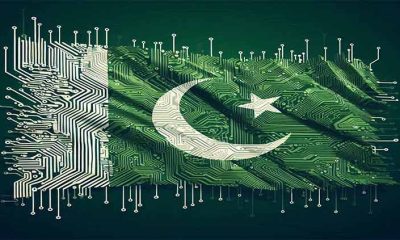

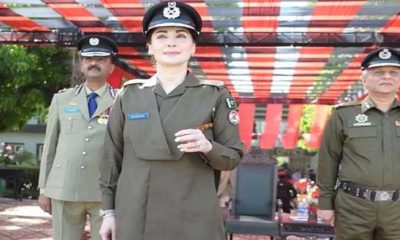

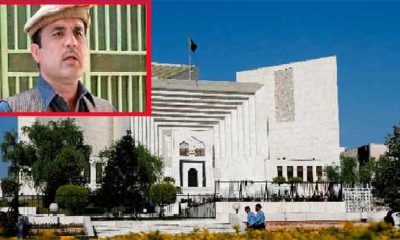

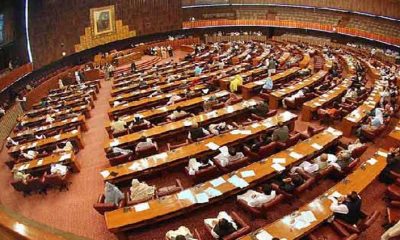

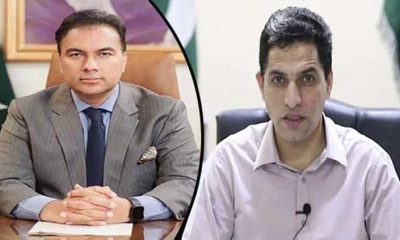


.jpg)









